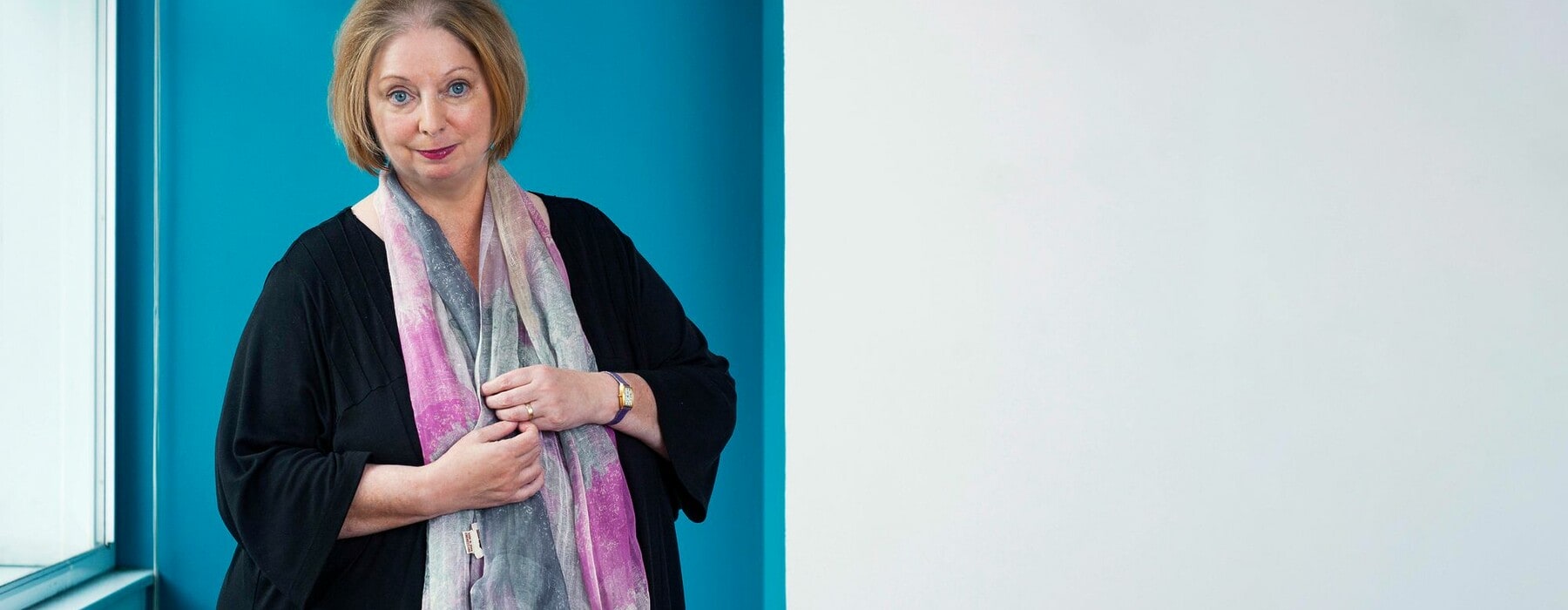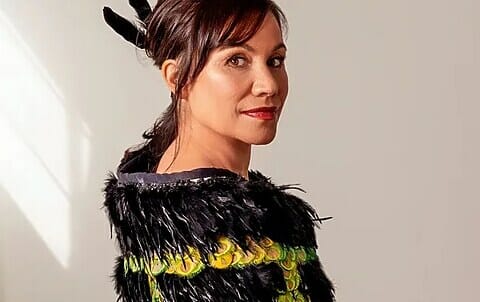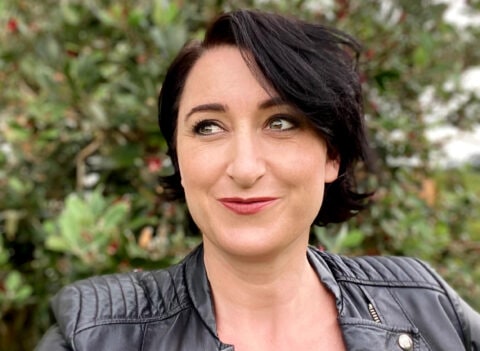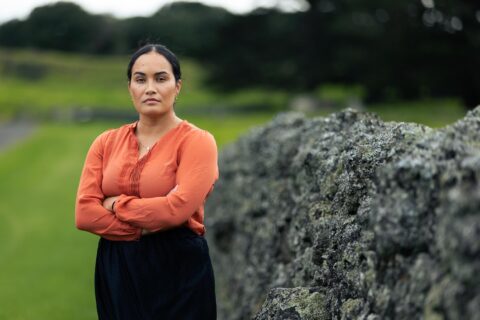One of our greatest living writers, Hilary Mantel, discusses losing her religion, living with chronic pain and putting the monarchy under the microscope with Jessamy Calkin.
On the morning of March 9, 2019 – the day that Hilary Mantel would finish writing The Mirror & the Light, the third volume of the trilogy she’d spent 15 years on – she woke up very early and went into her sitting room to find that, during the night, the picture of Henry VIII had fallen off the wall. It wasn’t broken, but the hook had snapped. Thomas Cromwell, meanwhile, despite having been executed on Henry’s orders, was still sitting smugly on the wall.
“I thought, ‘How beautifully appropriate. Thomas Cromwell is the winner, and Henry is just about to commence his own destruction.’ Because after Cromwell, it was to hell in a handcart. And in great good humour, I left him on the skirting board and went up the road to my office and wrote the end of the book.”
When finishing a book, theres always the consideration, says Hilary, of how you want the reader to be affected at the end of it. “I wanted to leave the reader feeling that it was a tragedy, but not a disaster. Cromwell changed England, and he probably did everything that he set out to do. So, although he must have gone to his execution in great distress, I don’t think it would be with regret.”
I wanted to leave the reader feeling that it was a tragedy, but not a disaster.
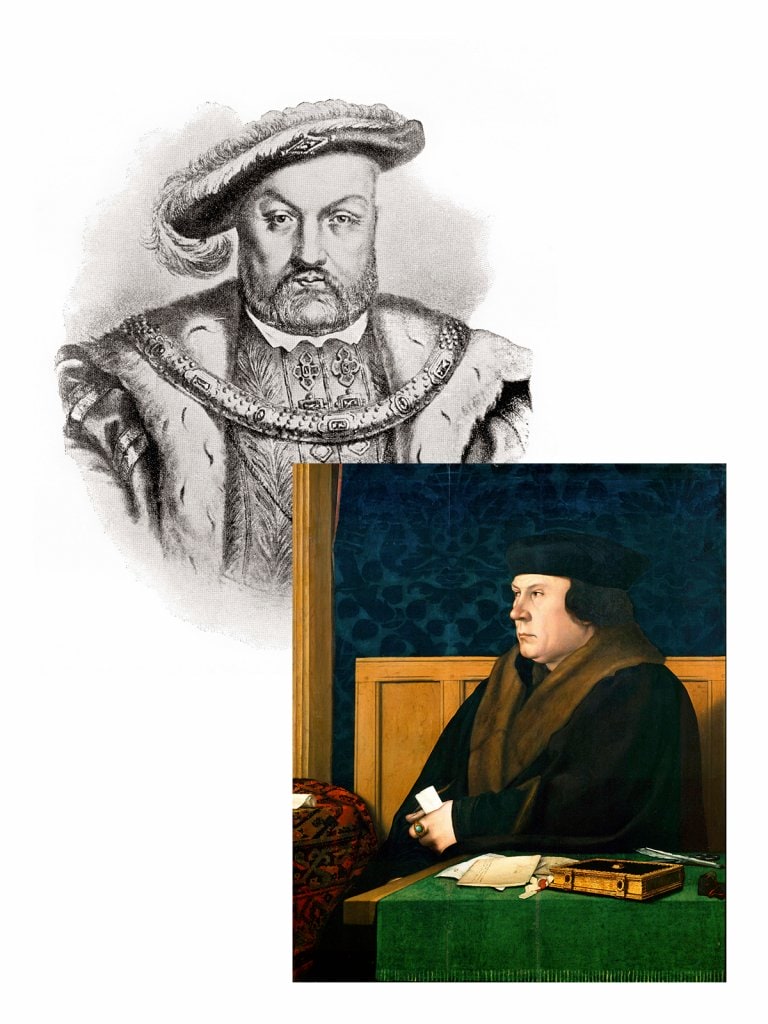
Meticulously planned, she had left herself with about two hours’ work to do. The earlier volumes, Wolf Hall and Bring Up the Bodies, had chalked up (among other literary awards) two Booker Prizes, a Royal Shakespeare Company play (which won two Olivier Awards and a Tony), and a TV adaptation (which won three BAFTAs and a Golden Globe). And now the third volume was finished – all 912 pages.
“When my husband came to collect me, I said, ‘It’s done’, and we looked at each other and laughed out loud. It seemed impossible that it could be finished.”
And how did she celebrate?
“I just wanted to sleep. I don’t have any rituals around writing. Strong tea is my greatest vice. So I think it was just a matter of, ‘Put the kettle on, Gerald.’”
Gerald McEwen is her husband of 49 years (with a break of two, when they got divorced and then remarried) and a retired geologist. They met when they were 16 and married four years later. For a decade they have lived in the little Devon town of Budleigh Salterton, in an apartment overlooking the sea. Not that Hilary has been able to appreciate it much, as she has been, in her own words, “away with the Tudors”. But there it is, ever present, filling the windows at the front of their house.
“Since we’ve lived here I’ve been writing really hard, and I often wonder if I haven’t blanked the sea out,” says Hilary. “Only in the last year have I really appreciated it. It’s a very moody presence. Every 10 minutes the colour alters, the rhythm, and we get terrific storms. Then there are days when it’s like a millpond. It’s wonderful to see the clouds come up, and we’re facing due south so we have a dark sky. I like to go for a starlit walk sometimes. If you have to be locked down, it’s absolutely the best place to be. You never feel any sense of confinement.”
We are talking, inevitably, via Zoom. Hilary, 69, is in her sitting room with a picture of Shakespeare on the wall behind her and the occasional glimpse of Gerald in the background. She’s had to cancel a lot of plans because of the pandemic, including an American book tour, but she has not been able to get away from the Tudors. For the last year, she’s been working on adapting The Mirror & the Light for the stage, in collaboration with the actor Ben Miles (who played Cromwell in the RSC’s 2014 adaptation of Wolf Hall and Bring Up the Bodies, and who narrates the audiobooks).
“I think your characters just take a step back. But they never really leave the room, you can always summon them,” Hilary says. “It’s as if when you finish a book, you seal it like a time capsule. Then you can open it and bring them out again.”
She will be bringing them out again for the next TV series, and is also working on a book with Ben and his brother Edward, photographing Tudor sites in England. But lockdown has meant that all these collaborations had to be done by email.
They live a quiet life, Hilary and Gerald, not socialising much. “We are a very self-contained unit, which of course has helped us tremendously through this last year.”
It’s been a far cry from the “sex, drugs and rock and roll” she promised to celebrate with after winning the Man Booker Prize in 2009 for Wolf Hall (her only addiction is semicolons, she tells me, admitting “I have been hopelessly in their grip since I was 14”). She then won a second Man Booker Prize for Bring Up the Bodies in 2012 – the first woman to have won twice – and was tipped to win again for The Mirror & the Light, but didn’t make it past the longlist.
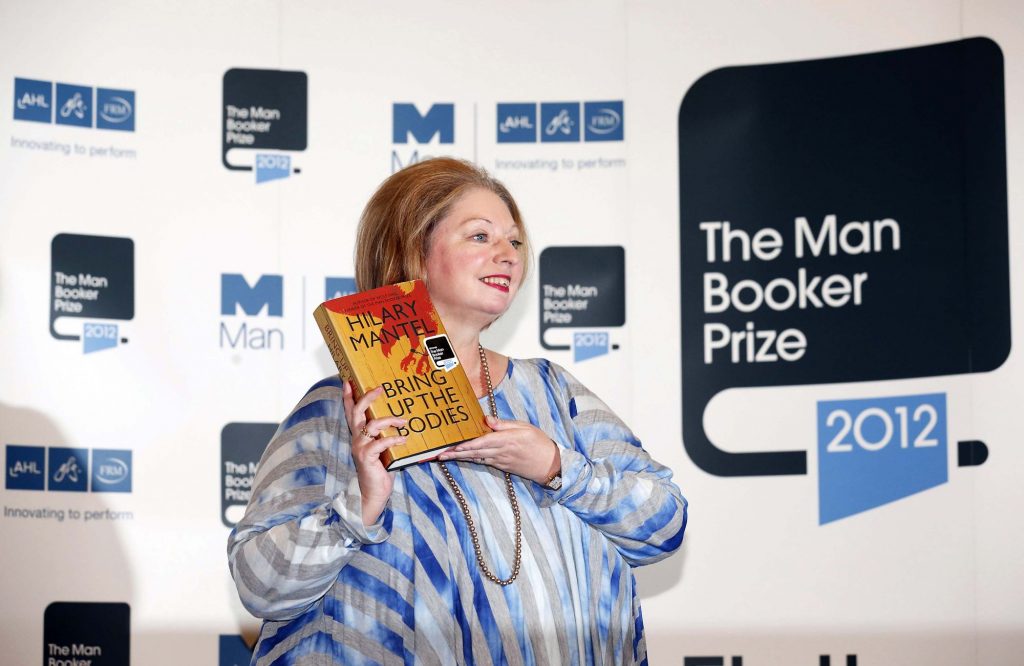
“Obviously I would love to have won again, but it did clear the air a bit, because of the weight of expectation. I felt like I could settle and get on with new projects.”
Last year she was made a Companion of Literature, the highest award bestowed by the Royal Society of Literature, which is only held by up to 12 writers at any one time. It is the accolade that means most to her.
In 2006, she was awarded a CBE, and in 2014, she became a Dame. How does that sit with her?
“Well, I’m very amused by it. You know, because of where I come from and the kind of expectations I grew up with. I’m amused and amazed as well.” It meant a lot to her, she says, to be given the medal by the Prince of Wales, patron of the RSC, which she was working with at the time. “It was lovely because we had a proper chat, there was nothing strained or false about it. He is a very active patron and comes to Stratford often.”
Which brings us to the monarchy. She is constantly asked what she thinks about the royal family, especially, she says, by Americans. But the truth is she doesn’t think much about it at all. Concerning Harry and Meghan, she’s not interested in taking sides. “I wouldn’t judge them, and I don’t believe we will ever know, really, what has happened there. So I just wish them well.”
And as far as the future of the monarchy goes? She pauses. “I think it’s the end game. I don’t know how much longer the institution will go on. I’m not sure if it will outlast William. So I think it will be their last big era. I wish the Queen had felt able to abdicate, because Charles has had to wait such a long time. I understand that she thinks of this as a sacred task, from which you simply cannot abdicate, whereas the rest of us think of it as a job from which you should be able to retire.
“I wonder if she’s the only person who really believes in the monarchy now, and I’m sure she believes with all her heart. She believes that she cannot cease to be a monarch – she made those promises to God. It’s such a cliché to say, but what a lonely position to be in. It’s a conflict, because most of the world sees the royal family as a branch of show business. And I’m sure that is very far from the Queen’s own thinking.”
Most of the world sees the royal family as a branch of show business. And I’m sure that is very far from the Queen’s own thinking
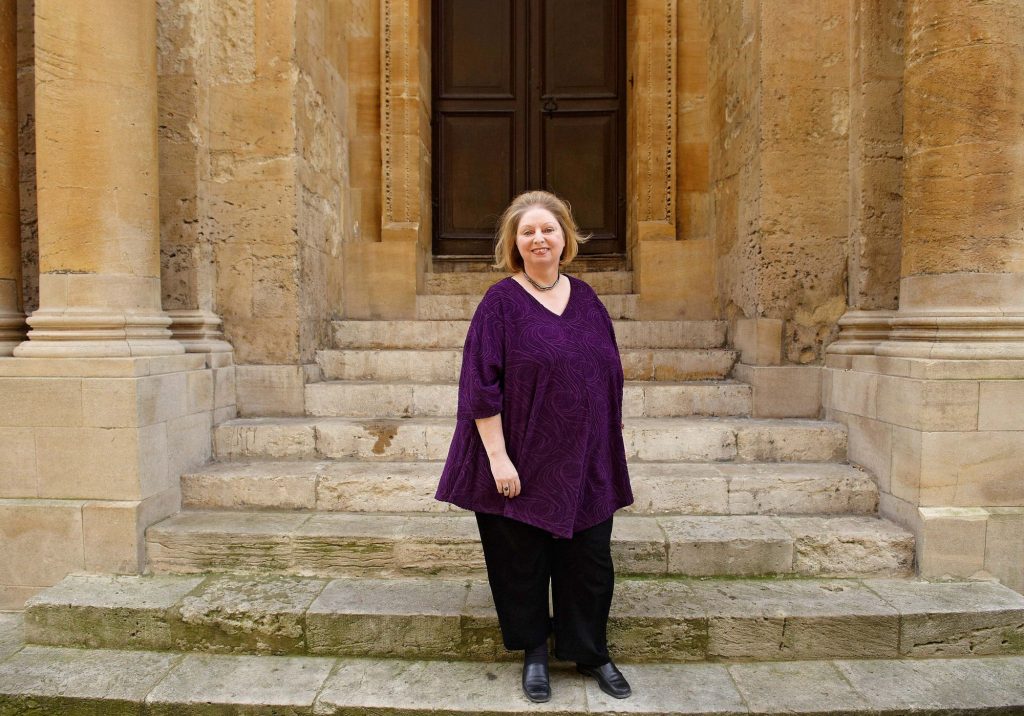
A few days after our interview, the Duke of Edinburgh died and the mourning began. In an email, Hilary said that she would not like to speculate on the Queen’s current state of mind. “I don’t like to guess at her feelings – far too much of that is happening already, and it’s intrusive. But the end of any long marriage is the end of a shared reality, and the landscape must be bleak. It’s a time when ordinary people seek seclusion and the company of familiar people and the comfort of routine, and are able to mourn in a natural way.
“But what recent events bring home is how far the monarchy’s arrangements with the media have turned it into a self-punishing institution. No other family would be expected to parade a very elderly, newly widowed lady before the TV cameras, and yet it’s taken for granted that’s what will happen – just as it’s taken for granted that a new royal mother will appear beaming on the hospital steps within a day of giving birth. There’s no legitimate public interest behind it.”
Hilary’s feelings on the monarchy first hit the headlines in 2013, when a speech she gave at the British Museum, later published with the title Royal Bodies in the London Review of Books, was quoted out of context and blew up into a scandal. The essay – which was in its entirety a much larger picture about the conflicts in our relationship with the royal family – was considered to be a slur on the Duchess of Cambridge, though it was in fact an indictment of the way the press objectifies women in the monarchy, and was largely sympathetic to Kate. A quote portraying her as a “jointed doll on which certain rags are hung” was picked up and flung about by the tabloids. Politicians weighed in and the press descended on Budleigh Salterton and camped out on the seafront.
“But none of my neighbours would tell them where I lived. Because in Budleigh Salterton we don’t do that sort of thing.
“The odd thing was, when I gave this talk, I didn’t expect anything to happen. It was an LRB lecture. I knew my audience, I knew who I was talking to. Never did it occur to me that people would start taking an interest in it or dragging bits out of context.
“But I wouldn’t do anything differently. Fortunately, I made the decision not to engage with social media, so the people on Twitter can fume and spit all they like and I don’t know a thing about it. Occasionally my husband would come in and say, ‘Oh now David Cameron’s talking about it. Oh, Ed Miliband’s joined in now…’ And I just thought, ‘Goodness, they should know better.’ Neither of them had read the thing, and I was appalled at their bad judgement, allowing themselves to comment on something they know nothing about. If there’s one thing politicians should be able to do, it’s dodge a question.”
So, she drew the blinds and got on with her work.
Hilary is a woman of quite extraordinary drive. She grew up in Derbyshire, the oldest of three children in an Irish Catholic family. Her father, Henry Thompson, was a clerk; her mother, Margaret, had worked in the local mill. Hilary was, she has said, unsuited to being a child. She had an avid appetite for literature and went to school with a head full of King Arthur and His Knights of the Round Table, which she badgered her family to read to her and then memorised by heart. She was given The Complete Works of Shakespeare at age 10, in order to keep her quiet.
She has two younger brothers, Brian and Ian. When Hilary was six, her mother’s lover, Jack Mantel, moved in and her father shifted to the spare room. Inevitably, this engendered malevolent gossip and the disapproval of her maternal grandparents as well as the rest of the community, and her father left when she was 11. She never saw him again. The family then moved to Cheshire, and Margaret later married Jack, whom Hilary did not get on with.
Years later, following her father Henry’s death, Hilary received a letter from a woman who became his stepdaughter. “The children of the family into which he married were relatively grown up when he came along,” she says. “He was their mother’s husband, rather than a substitute father. They were able to give me his birth certificate and army papers,” she says. They also gave her his precious chess set, which she used to play with him.
Henry had spotted Hilary on television, it turned out, at a Booker Prize dinner (in 1990, the year that A. S. Byatt won for Possession). He’d said, “I think that is my daughter.”
Hilary was raised a Catholic, but says she doesn’t have much to do with the religion nowadays – though she is, culturally, still a Catholic. “And I always will be, because that’s the way my thinking was formed, and the rest is reaction to it.”
As a child, she was intensely interested in faith, but when she was 12 she lost her religion. “I just woke up one day and didn’t believe anything anymore,” she recalls. She went to Catholic schools, “but I was mystified by the nuns because they seemed to have no spiritual life whatsoever. And after encountering various priests, I began to think that they were rather worse than the average human being, not better. There’s no accounting for that sudden feeling that maybe you’ve been told a pack of lies.”
I just woke up one day and didn’t believe anything anymore. There’s no accounting for that sudden feeling that maybe you’ve been told a pack of lies
Her views were changed a little by 15 years spent “living with men and women of faith”– her characters in the Thomas Cromwell trilogy – and studying the Reformation. “In the end I have such respect for the fact of their faith, if not for the content of what they believed.”
Now, she says, she has a religious mindset and a spiritual outlook, but doesn’t observe any particular faith. “For a time I thought there was nothing, that the world is all there is, the material is all that matters. But I don’t think that now. I was wondering the other day whether it is easier to pray or not to pray, although it sounds odd, the idea of praying if you don’t believe. I think it’s probably easier to pray, but whether the easiest thing is the right thing, I don’t know.”
At 18, Hilary went to London to study law, living in a women’s hall of residence in Bloomsbury. But she had no money and knew she would never be able to afford to train as a barrister, as she had hoped. And she wanted to be near Gerald, who was studying geology at the University of Sheffield, so she transferred there. They were married in 1972.
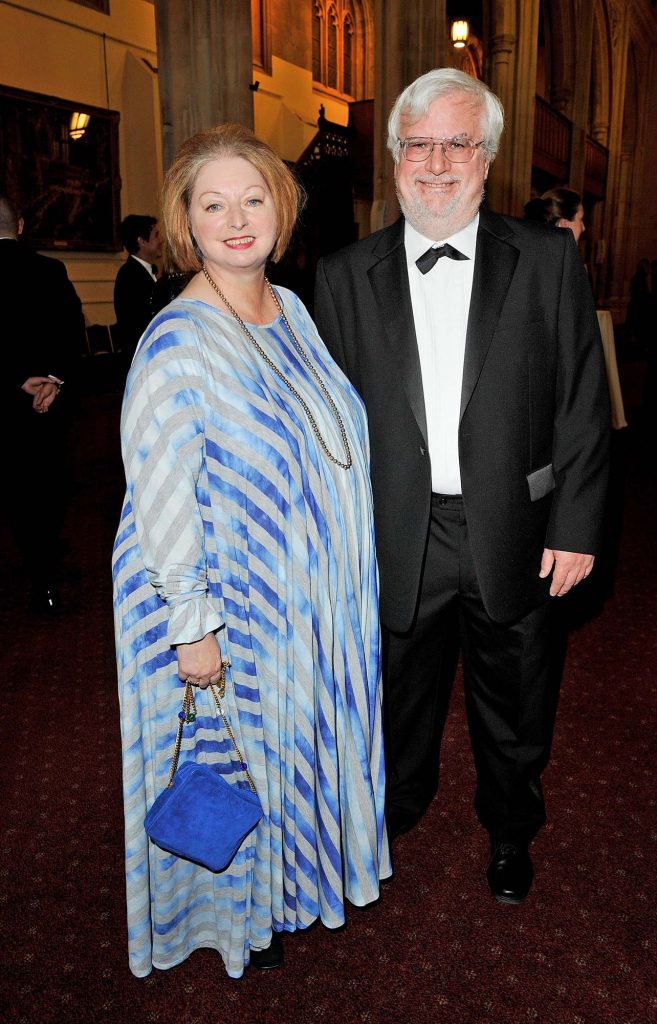
Hilary had always been sickly – the family doctor used to call her Miss Neverwell. But in her early twenties, the pain started in earnest. It moved about her body in a manner that, combined with nausea and agonising menstrual cramps, should certainly have indicated endometriosis. Instead, a series of doctors diagnosed depression. One even suggested it was stress caused by her being too ambitious, while another recommended that she give up writing.
She was prescribed anti-psychotic drugs, one of which had a side effect of causing psychosis in the form of a disorder called akathisia – a condition that causes a feeling of restlessness and an urgent need to move – which she has described as the worst thing she has ever experienced in her life. When she left university, she came off the drugs and the symptoms they had induced dissipated, but the pain and nausea did not.
Several years later, by which time she was living in Botswana and had started writing (Gerald was working as a geologist, she was teaching), she went to the university library and diagnosed herself with endometriosis. She returned to the UK on leave at Christmas 1979, where she had surgery to remove her womb, her ovaries and part of her bowel. An early menopause.
“But too much active endometriosis had been left behind, and it continued to damage my body,” she says. “Prescribed drugs had nasty side effects and didn’t work very well. I had to find ways of living with the condition, but it meant that my body was unreliable and life was quite narrow and effortful.”
There would never be any children. In her memoir, Giving Up the Ghost, Hilary writes extremely movingly about this – not so much about not having a child, but not having the choice.
Four months later she returned to Botswana, but soon came back again, as her illness had contributed to the breakdown of her marriage. She was put on a reckless-sounding trial-and-error hormone treatment. “By the end of nine months, the pain was no better, but my body weight had increased by over 50%,” she wrote. She went from a size eight to an 18 in what seemed like no time. She was living in Norfolk, and when Gerald came back from Africa, they remarried. “We had been separated for no more than two years when my ex-husband came to England, changed,” she writes in Giving Up the Ghost. She will say no more.
Hilary was put on new drugs. “A few weeks on, I’d developed a steroid moonface. My hair had come out in handfuls. I was deaf, my eyesight was blurred by constant headaches, and my legs were swollen like bolsters.” For once, a doctor helped – he cut the dose of drugs. “Bald, odd-shaped, deaf but not defeated, I sat down and wrote another book.”
She has survived and flourished by writing. She did not, as some people think, begin her literary career with Wolf Hall – although, she says, as soon as she started it, “I felt I had got my seven-league boots on. It was a feeling of great power.” She started writing her first book, a novel about the French Revolution, when she was 23 (it came out 17 years later, as A Place of Greater Safety). Since 1985 – when her first book, Every Day is Mother’s Day, was published – Hilary has written 12 novels, two collections of short stories, a memoir and plenty of journalism, some of which is collected in last year’s Mantel Pieces. She writes a prolific daily journal and her brain is constantly roiling with ideas.
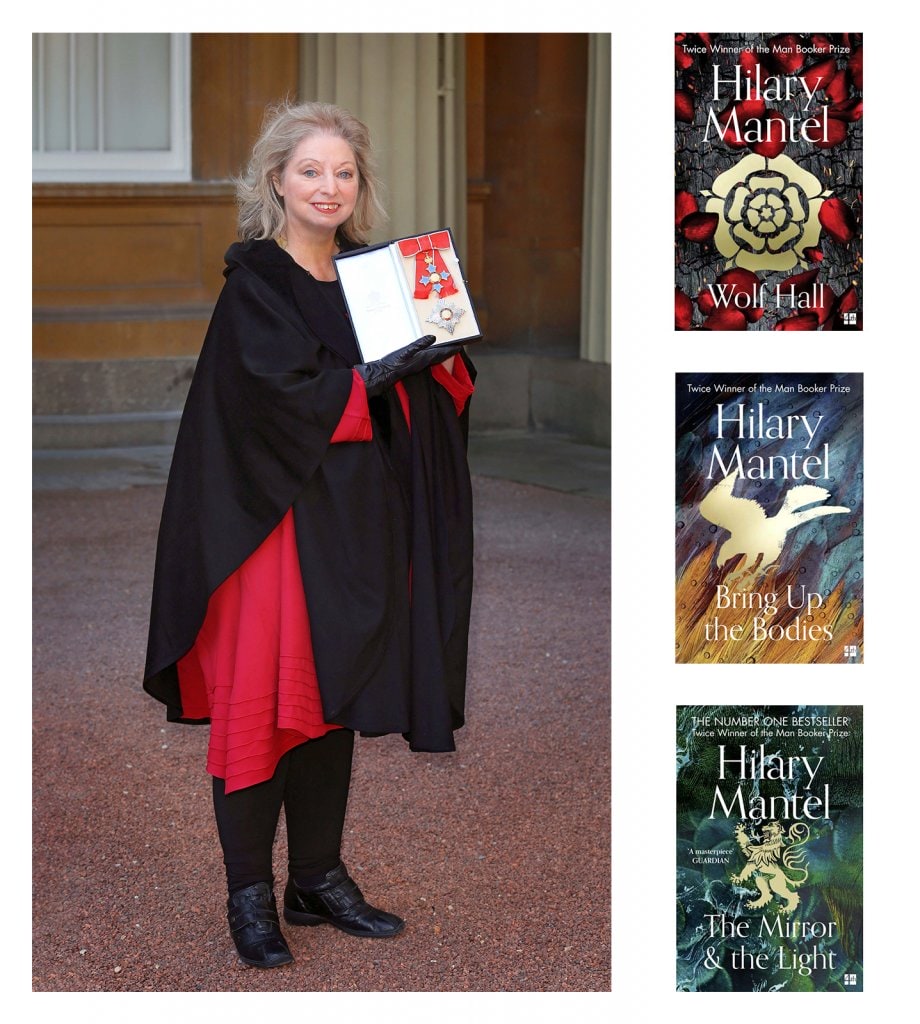
And she had to come to terms with the effects on her health, and her new shape. “When you get fat, you get a new personality. You can’t help it,” she wrote in an article for The Guardian. “One of my favourite grim sports, since I became a published writer and had people to interview me, has been to wait and see how the profiler will turn me out in print. With what adjective will they characterise the startlingly round woman on whose sofa they are lolling.”
Ten years ago, Hilary had further surgery. “I had masses of internal scar tissue removed,” she says. “This in itself was necessary and very helpful, but unfortunately my large wound became infected and took several months to heal, and there were other complications that sent me back to hospital. But I am very grateful to that surgeon’s heroic efforts, because eventually I got back on the right track.
“It took a couple of years for me to feel different, but from then on I had some pain-free days, which hadn’t happened for a long time. And a little while after that, I was able to get involved in the theatre adaptations of the books. That’s still not an easy thing for me, so I have to live very quietly when I’m not involved in public events. I have often shown up in a very poor state, and realised I shouldn’t have made that commitment – but it’s hard to know in advance, and I am always optimistic.”
How is she now? “Well, as far as endometriosis is concerned, I’m a burnt-out case. What I’m suffering from now is the ‘cures’ – the knock-on effects. It wasn’t as simple as losing my fertility at 27, there is a consequence for the body as a whole, and no one, least of all me, knew what that was going to be. Over the years, things go wrong.
“So in some ways, I don’t even know what age I am. When you have a menopause at 27, you don’t have the ordinary markers of a woman’s life. I’m not strong. I probably am older than I should be. If I compare myself to my mother, who was vigorous into her late eighties, I see that I’m not doing terribly well. I’d say it’s a challenge.”
Her mother died in 2017, aged 91. “She was a very talented woman who had absolutely no education and no opportunities in her life. And she definitely wanted me to do better. But I felt I could never please her; I felt that nothing I did would be good enough. I don’t think she ever really understood my career, in the sense that undertaking a lonely project for years at a time was very alien to her, because she was a person who couldn’t be on her own for a minute. She liked to talk. I’m silent. In that respect, we couldn’t have been more opposite. She was socially driven, and I’m self-actuating. She cared a great deal about appearances, and I’m my own judge and critic.”
There were no other writers in her family. “My great-grandmother couldn’t read or write at all. I think of her a lot, and of the women behind her, with no power to tell their own stories. She drives me on. It feels as if I have broken through, so that what she didn’t have is a tremendous source of power for me. I have her stories to add to mine.”
Article by Jessamy Calkin / The Telegraph Magazine

